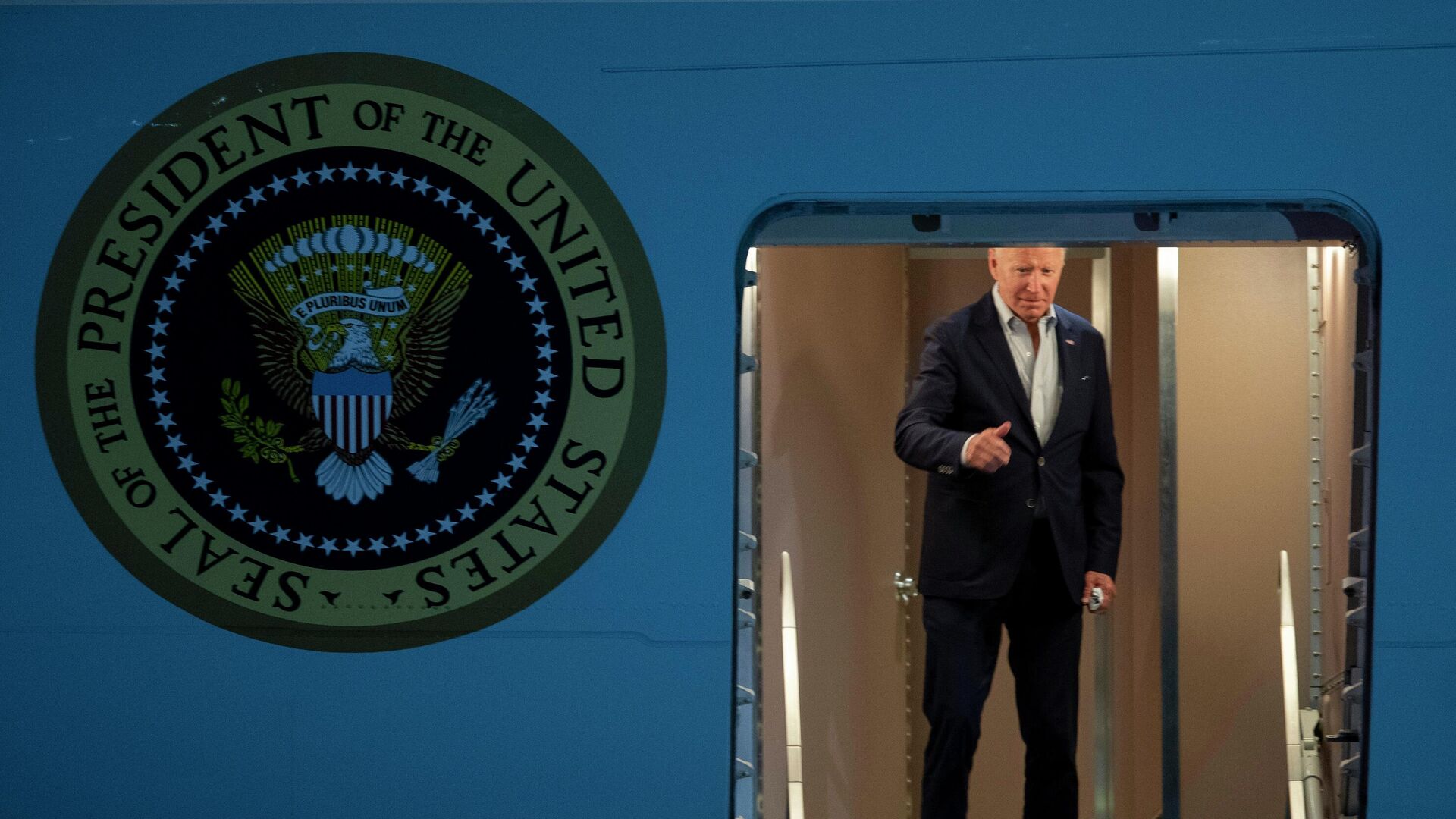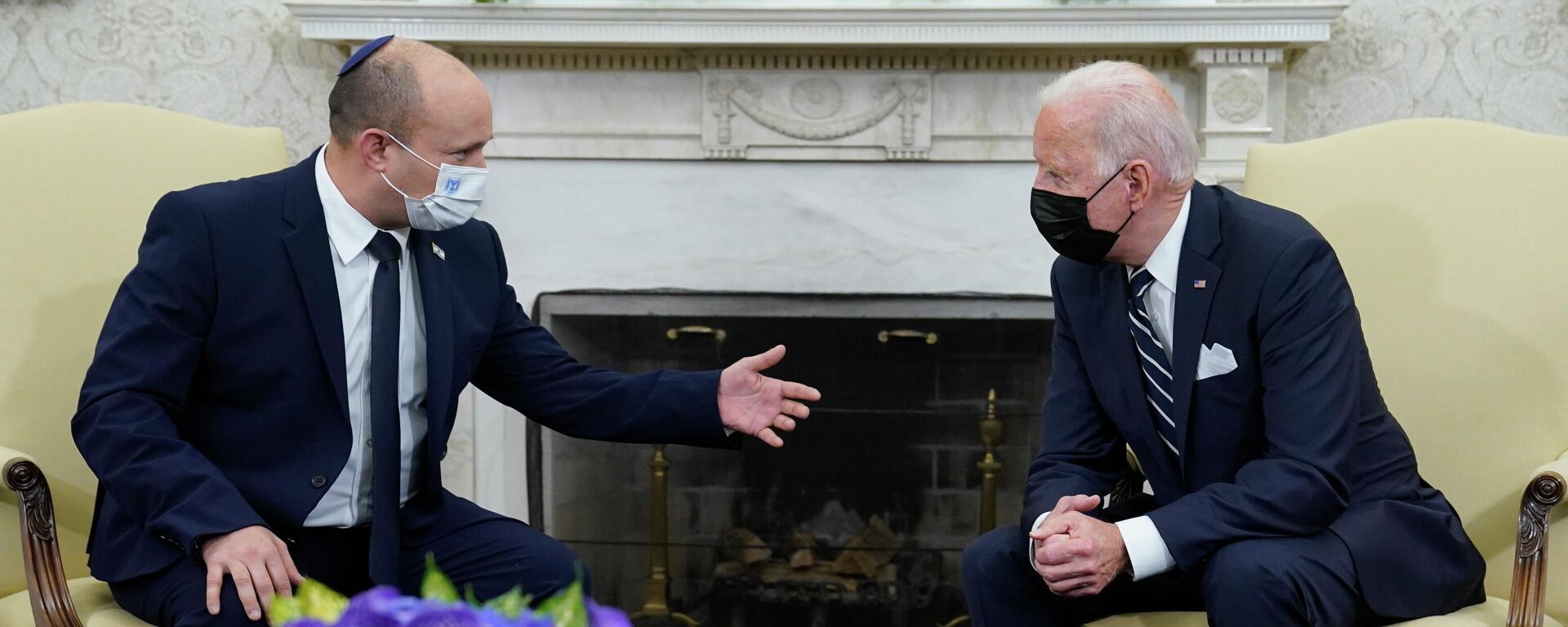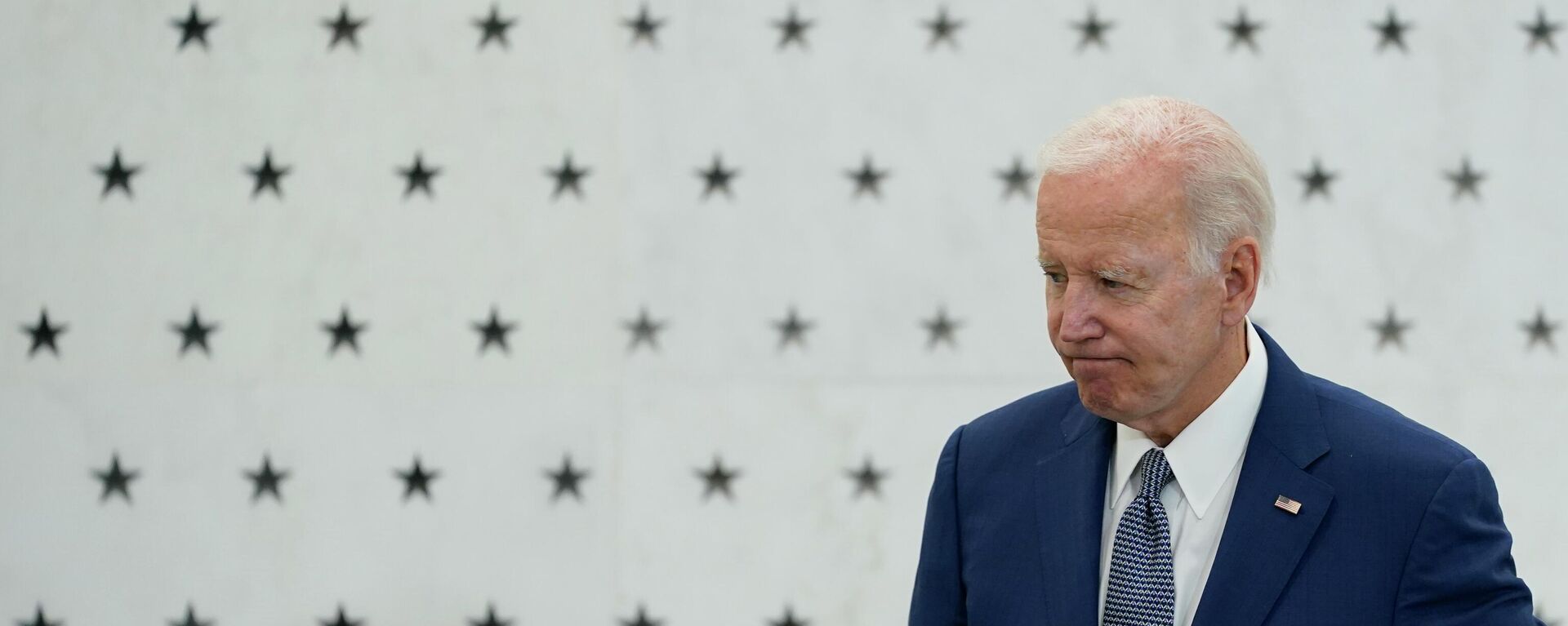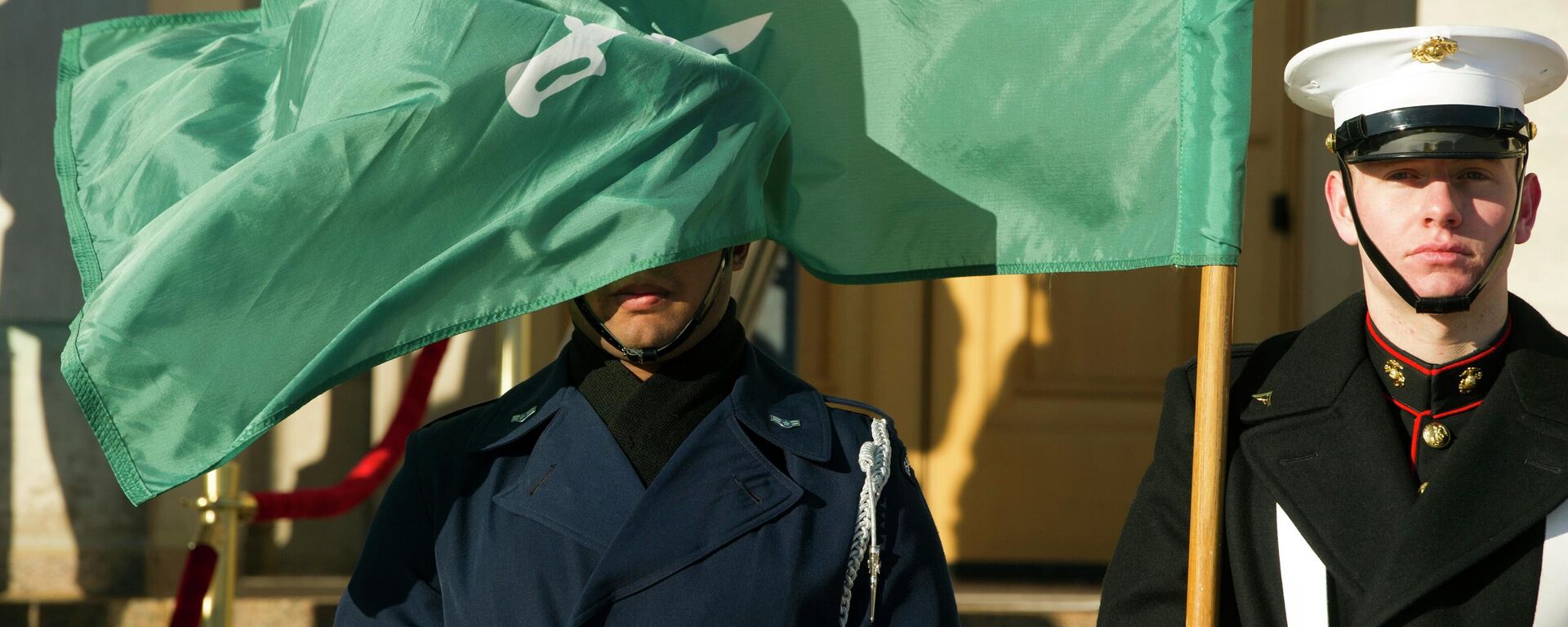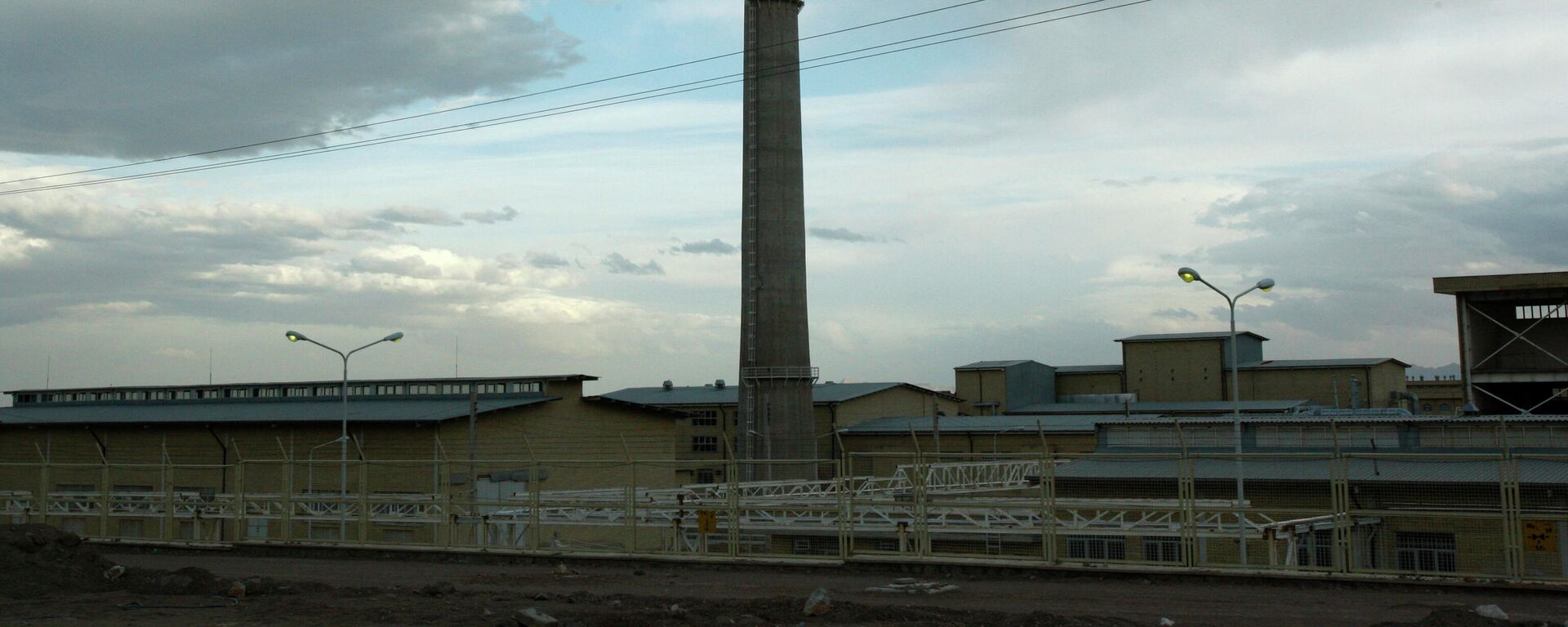https://sputnikglobe.com/20220713/what-to-expect-as-biden-arrives-in-middle-east-1097266724.html
What to Expect as Biden Arrives in Middle East
What to Expect as Biden Arrives in Middle East
Sputnik International
WASHINGTON (Sputnik) – Joe Biden has arrived in the Middle East, with his first stop in Israel. He will visit the West Bank and Saudi Arabia on July 13-16 in... 13.07.2022, Sputnik International
2022-07-13T10:46+0000
2022-07-13T10:46+0000
2023-01-15T17:26+0000
middle east
joe biden
west bank
saudi arabia
israel
https://cdn1.img.sputnikglobe.com/img/07e6/07/0d/1097266578_0:0:2965:1668_1920x0_80_0_0_6e228531ff9795226d783e7f78896814.jpg
The trip will "start a new and more promising chapter of America’s engagement there," Biden said in an op-ed published Saturday in The Washington Post, adding that it "comes at a vital time for the region, and it will advance important American interests."Biden will "reinforce the United States’ iron-clad commitment to Israel’s security and prosperity" and attend a summit of the Gulf Cooperation Council plus Egypt, Iraq, and Jordan (GCC+3), according to a release.ISRAELBiden argued in his op-ed that the Middle East had become "more stable and secure" during the 18 months of his administration thus far. His visit will begin in Israel, where he will discuss its security, prosperity, and its increasing integration with the Middle East.Biden said his administration had already "helped end a war in Gaza — which could easily have lasted months — in just 11 days," in reference to the events of May 2021. He also said it had "rebuilt U.S. ties" with Palestinians, restoring about $500 million in aid. At the same time, it also approved more than $4 billion in military aid to Israel in May — what Biden called the "largest support package for Israel … in history."The trip may also produce "interesting" announcements as the US is working to expand the Abraham Accords on normalization between Israel and Arab states, the State Department's top policy official for the Middle East said in June.WEST BANKOn his second stop, Biden will meet with the Palestinian Authority president in the West Bank and "reiterate his strong support for a two-state solution," according to the White House.Biden is expected to be met with protests during his stop in Ramallah, as Palestinians will tell him that they are "fed up" with empty promises.SAUDI ARABIAThe US president's final stop will be in Jeddah, which is also the venue for the GCC gathering. The president is expected to try to recalibrate relations with Saudis amid speculation over a deepening political rift between the allies under the current US administration.During his 2020 presidential campaign, Biden labeled Saudi Arabia a "pariah state" over what he said was the crown prince's purported role in the murder of journalist Jamal Khashoggi. Media alleged that the differences have only deepened during the Ukraine crisis, which reportedly saw Saudi and Emirati leaders decline calls with Biden amid his effort to contain oil prices and reduce costs at the pump for Americans.Biden said his administration had "reversed the blank-check policy we inherited," and taken actions to hold Saudi Arabia accountable for Khashoggi’s murder, including declassifying the US intelligence community’s report, issuing sanctions on the team that killed him and visa bans on those harassing other dissidents overseas. He also said his administration had advocated for US citizens wrongfully detained in Saudi Arabia before he took office, adding that they had since been released.He argued that engaging directly with countries such as Saudi Arabia that could help counter Russian "aggression" and Chinese competition was critical to maintain the strength and security of the United States. He said his aim during his upcoming trip was to "strengthen a strategic partnership going forward that’s based on mutual interests and responsibilities."White House confirmed Thursday that Biden will have a bilateral meeting with Saudi King Salman bin Abdulaziz Al Saud and his leadership team, including Saudi Crown Prince Mohammed bin Salman. This would be Biden’s first face-to-face meeting with the Saudi leadership since assuming the presidency.The president is expected to address energy issues during the meeting. US National Security Advisor Jake Sullivan has confirmed that Biden will also have the opportunity to discuss energy security with leaders of other OPEC nations, but declined to discuss specific details or what the administration deemed sufficient capacity in order to bring down gas prices. He said the administration believed it was necessary to have an "adequate supply in the global market" both to protect the global economy and American retail consumers, while noting there was no quick fix.In his op-ed, Biden noted he would be the first US president to fly from Israel to Jeddah, calling it "a small symbol of the budding relations and steps toward normalization between Israel and the Arab world, which my administration is working to deepen and expand."OTHER CHALLENGESBiden noted that the Middle East still faced many challenges, including Iran’s nuclear program and support for proxy groups, Syria's war, food security, terrorism, human rights, and political gridlock in Iraq, Libya, and Lebanon.Regarding Iran, he said his administration had managed to regain pre-Trump alliances in order to isolate the country and would "continue to increase diplomatic and economic pressure" on Iran to resume compliance with the 2015 nuclear deal.Biden argued that the region was nonetheless "less pressurized and more integrated" in the 18 months of his administration and he would seek to make progress in these various challenges during his meetings with regional leaders.
https://sputnikglobe.com/20220712/israel-hopes-to-wow-biden-with-iron-beam-iron-dome-davids-sling-missile-show-and-tell-1097239635.html
https://sputnikglobe.com/20220705/israel-saudi-deal-palestinians--iran-agreement-whats-on-agenda-of-bidens-mideast-trip-1096975014.html
https://sputnikglobe.com/20220710/biden-saudi-arabia-trip-important-for-countering-russia-china--keeping-us-leadership-afloat-1097141603.html
https://sputnikglobe.com/20220711/us-reportedly-considers-lifting-ban-on-sale-of-offensive-arms-to-saudi-arabia--1097187835.html
https://sputnikglobe.com/20220712/iran-says-bidens-sanctions-policy-contradicts-stated-goal-of-rescuing-nuclear-deal-1097232879.html
west bank
saudi arabia
israel
Sputnik International
feedback@sputniknews.com
+74956456601
MIA „Rossiya Segodnya“
2022
Sputnik International
feedback@sputniknews.com
+74956456601
MIA „Rossiya Segodnya“
News
en_EN
Sputnik International
feedback@sputniknews.com
+74956456601
MIA „Rossiya Segodnya“
Sputnik International
feedback@sputniknews.com
+74956456601
MIA „Rossiya Segodnya“
middle east, joe biden, west bank, saudi arabia, israel
middle east, joe biden, west bank, saudi arabia, israel
What to Expect as Biden Arrives in Middle East
10:46 GMT 13.07.2022 (Updated: 17:26 GMT 15.01.2023) WASHINGTON (Sputnik) – Joe Biden has arrived in the Middle East, with his first stop in Israel. He will visit the West Bank and Saudi Arabia on July 13-16 in an effort to reset engagement in the region by bolstering partnership with Israel, mending frayed ties with Saudi Arabia and rallying support of Gulf allies to ease surging oil prices.
The trip will "start a new and more promising chapter of America’s engagement there," Biden said in an op-ed published Saturday in The Washington Post, adding that it "comes at a vital time for the region, and it will advance important American interests."
Biden will "reinforce the United States’ iron-clad commitment to Israel’s security and prosperity" and attend a summit of the Gulf Cooperation Council plus Egypt, Iraq, and Jordan (GCC+3), according to a release.
Biden argued in his op-ed that the Middle East had become "more stable and secure" during the 18 months of his administration thus far. His visit will begin in Israel, where he will discuss its security, prosperity, and its increasing integration with the Middle East.
Biden said his administration had already "helped end a war in Gaza — which could easily have lasted months — in just 11 days," in reference to the events of May 2021.
He also said it had "rebuilt U.S. ties" with Palestinians, restoring about $500 million in aid. At the same time, it also approved more than $4 billion in military aid to Israel in May — what Biden called the "largest support package for Israel … in history."
The trip may also produce "interesting" announcements as the US is working to expand the Abraham Accords on normalization between Israel and Arab states, the State Department's top policy official for the Middle East said in June.
On his second stop, Biden will meet with the Palestinian Authority president in the West Bank and "reiterate his strong support for a two-state solution," according to the White House.
Biden is expected to be met with protests during his stop in Ramallah, as Palestinians will tell him that they are "fed up" with empty promises.
“The Palestinian issue is not at the top of Biden’s agenda. Ignoring the Palestinian issue will only increase tensions and undermine security and stability in the region,” a PNA official told the Jerusalem Post on Tuesday. “We are fed up with empty promises. If the Americans continue to ignore our demands, the situation will further deteriorate. We want the Palestinian cause to return to the center of the world’s attention.”
The US president's final stop will be in Jeddah, which is also the venue for the GCC gathering. The president is expected to try to recalibrate relations with Saudis amid speculation over a deepening political rift between the allies under the current US administration.
During his 2020 presidential campaign, Biden labeled Saudi Arabia a "pariah state" over what he said was the crown prince's purported role in the murder of journalist Jamal Khashoggi. Media alleged that the differences have only deepened during the Ukraine crisis, which reportedly saw Saudi and Emirati leaders decline calls with Biden amid his effort to contain oil prices and reduce costs at the pump for Americans.
Biden’s op-ed was titled "Why I’m Going to Saudi Arabia" in recognition of the "many who disagree" with his decision to travel there. The US president argued that his "aim was to reorient — but not rupture — relations with a country that’s been a strategic partner for 80 years."
Biden said his administration had "reversed the blank-check policy we inherited," and taken actions to hold Saudi Arabia accountable for Khashoggi’s murder, including declassifying the US intelligence community’s report, issuing sanctions on the team that killed him and visa bans on those harassing other dissidents overseas. He also said his administration had advocated for US citizens wrongfully detained in Saudi Arabia before he took office, adding that they had since been released.
He argued that engaging directly with countries such as Saudi Arabia that could help counter Russian "aggression" and Chinese competition was critical to maintain the strength and security of the United States. He said his aim during his upcoming trip was to "strengthen a strategic partnership going forward that’s based on mutual interests and responsibilities."
White House confirmed Thursday that Biden will have a bilateral meeting with Saudi King Salman bin Abdulaziz Al Saud and his leadership team, including Saudi Crown Prince Mohammed bin Salman. This would be Biden’s first face-to-face meeting with the Saudi leadership since assuming the presidency.
The president is expected to address energy issues during the meeting. US National Security Advisor Jake Sullivan has confirmed that Biden will also have the opportunity to discuss energy security with leaders of other OPEC nations, but declined to discuss specific details or what the administration deemed sufficient capacity in order to bring down gas prices.
He said the administration believed it was necessary to have an "adequate supply in the global market" both to protect the global economy and American retail consumers, while noting there was no quick fix.
In his op-ed, Biden noted he would be the first US president to fly from Israel to Jeddah, calling it "a small symbol of the budding relations and steps toward normalization between Israel and the Arab world, which my administration is working to deepen and expand."
Biden noted that the Middle East still faced many challenges, including Iran’s nuclear program and support for proxy groups, Syria's war, food security, terrorism, human rights, and political gridlock in Iraq, Libya, and Lebanon.
Regarding Iran, he said his administration had managed to regain pre-Trump alliances in order to isolate the country and would "continue to increase diplomatic and economic pressure" on Iran to resume compliance with the 2015 nuclear deal.
Biden argued that the region was nonetheless "less pressurized and more integrated" in the 18 months of his administration and he would seek to make progress in these various challenges during his meetings with regional leaders.
